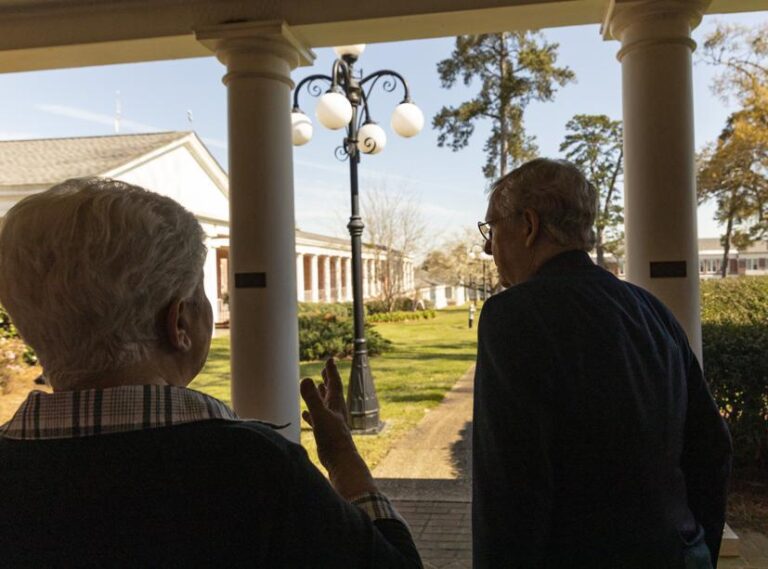WASHINGTON — Their numbers are dwindling now, the faded yellow newspaper clippings reporting their childhood trips to the hospital tucked away in family scrapbooks. Iron lungs, the coffin-like cabinet respirators that kept many of them alive, are a thing of the past, relegated to history books and museums. Some feel the world has forgotten them.
Now the nation’s polio survivors are reliving their painful memories as they watch events in Washington, where the Senate will soon consider the nomination of Robert F. Kennedy Jr., a fierce critic of vaccines, to be the nation’s next health secretary. And they are keeping a close eye on one of their own: Senator Mitch McConnell, of Kentucky, the former Republican leader.
It has been nearly 70 years since Dr. Jonas Salk’s polio vaccine was pronounced “80 to 90 percent effective’’ against the paralytic form of the disease. Although the government does not keep official numbers, advocacy groups say there are an estimated 300,000 survivors in the United States. Kennedy’s nomination has prompted some to speak out.
Movie director Francis Ford Coppola recently recalled being in a hospital ward “so crammed with kids that there were gurneys piled up three and four high in the hallways.’’ Actress Mia Farrow, infected when she was 9, posted a picture of a room filled with iron lungs on Instagram with the caption: “No RFK Jr. we cannot go back to this. # polio.’’
Representative Steve Cohen, a Tennessee Democrat, the only other polio survivor in Congress, called pointedly for the Senate to reject the nomination. “I believe I have a duty to speak out for all who have had polio — from those lightly affected to those who lived in iron lungs and died,’’ Cohen said in a recent statement.
President-elect Donald Trump has also weighed in, telling reporters last month that he has friends who are “still in not such good shape’’ as a result of their polio infections. “Many people died, and the moment they took that vaccine, it ended,’’ he said. “Dr. Jonas Salk did a great job.’’
Kennedy insisted he was “all for the polio vaccine’’ while touring Capitol Hill last month for the customary courtesy meetings with senators. But some of his recent statements suggest otherwise. He has said, for example, that the idea that the vaccine resulted in a drastic decline in polio cases is “a mythology’’ that is “just not true.’’ He has also asserted that the polio vaccine caused an explosion in soft-tissue cancers that killed more people than polio.
One of Kennedy’s closest advisers, lawyer Aaron Siri, has petitioned the government on behalf of another client to revoke its approval of the stand-alone polio vaccine, and to “pause distribution’’ of 13 other vaccines, including some combination products that include the polio vaccine. A spokesperson for Kennedy, Katie Miller, has said that “Mr. Kennedy believes the polio vaccine should be available to the public and thoroughly and properly studied.’’
When asked about the concerns of polio survivors, Miller said: “My grandfather had severe polio and half his face was paralyzed. I still support Kennedy. These two things are unrelated.’’
On Friday, The New York Times reported that Kennedy had opposed another critical vaccine. In 2021, when thousands of Americans were still dying of the coronavirus every week, he asked the Food and Drug Administration to revoke the use of all COVID vaccines.
In interviews, nearly a dozen polio survivors uniformly opposed Kennedy. Some said they are looking for McConnell to lead the charge against his confirmation.
“If McConnell fails to speak out on this issue it will undoubtedly stain his legacy,’’ said Susan Schoenbeck, a polio survivor and nurse educator whose book, “Polio Girl,’’ explores the stigma of polio and contains advice for medical professionals treating survivors. “I’m not sure the polio survivor community could ever forgive him.’’
McConnell has spoken out, though only obliquely and without stating how he will vote. Without mentioning Kennedy’s name, he warned that “anyone seeking the Senate’s consent to serve in the incoming administration would do well to steer clear’’ of “efforts to undermine public confidence in proven cures.’’ The senator declined an interview request.
Post Polio Health International, a St. Louis-based nonprofit that promotes the “well-being and independence of polio survivors,’’ has sent a letter opposing Kennedy to all 100 senators.
Brian Tiburzi, the group’s executive director, said its members were looking for McConnell to speak out more forcefully. “I think people were left a little wanting by his original statement,’’ he said. “I think they would have liked him to take a more explicit stand against RFK’s nomination.’’
At the peak of the polio wave in the United States, in 1952, the disease sickened nearly 60,000 people, leaving more than 21,000 paralyzed and killing more than 3,000. The United States declared polio eradicated in 1979.
McConnell, 82, was infected in 1944, when he was 2. He has recounted his experience in an autobiography and interviews, and in a 2005 speech to mark the 50th anniversary of the Salk vaccine. In a sense, McConnell was lucky; he was treated at the polio rehabilitation center established in Warm Springs, Ga., by the nation’s most famous polio victim, President Franklin D. Roosevelt.
The opinion of McConnell, a former leader, carries weight with fellow Republicans. He will have an opportunity, if he chooses, to speak about Kennedy’s fitness when the Senate takes up the nomination. But McConnell does not serve on either committee — the Senate Health Committee and the Senate Finance Committee — that will hold hearings, not yet scheduled, on Kennedy’s confirmation.
